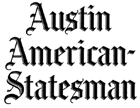Star Wars: Why The Huge Opening Matters
During the hoopla of the opening weekend for “Star Wars: The Force Awakens” it’s been hard not to feel left out.
I grew up in the 70s in the small town of Deer Park, Texas, on the belching smokestack side of Houston.
On the opening day of the original “Star Wars”, my uncle called my father and offered to carry me along to see the film with his two boys. My father turned him down, thinking his seven year-old daughter wouldn’t like it.
In my elementary school, the original “Star Wars” became a bigger and bigger force. Soon many people had the toys and action figures. I heard the story over and over, recited in bits and pieces and filtered through grade school vocabularies, then acted out with the action figures.
By the time I figured out that “Star Wars” was a huge thing I had “missed the movie.” In those pre video-on-demand days, I had no hope of seeing a film that was no longer in wide release.
Other than seeing the much-dismissed once-broadcast “Star Wars Holiday Special” on television at my grandparents on Friday November 17, 1978 (with me often holding the antenna to provide better reception for my cousins) I didn’t see any of the series. The closest I got was my local dance academy basing a dance recital around the first “Star Wars.” (I was in a tap number in the cantina scene.) The film was such a cultural touchstone that I even had a “Princess Leia” action figure and a “Star Wars” watch of my own, despite having never seen the films.
As the “Star Wars” juggernaut progressed, so did my feelings of left-out-ness. Despite reading the books (there were paperback novelizations of the 70s and 80s “Star Wars” films) I was never part of the conversation.
In the 90s when the three original “Star Wars” films were re-released theatrically, my now-husband insisted that I take time away from graduate school to see them. I was lukewarm on the idea after having missed them for so long. I loved the films when I saw them in the theaters in the 90s! Had I seen them as a child I’m sure that they would have been huge for me.
In the long run up to “Star Wars Opening Weekend 2015” I’ve been stuffing these feelings down. But the new “Star Wars” film has been hard to miss, even with my being in Deer Park with my aging parents on opening day. The film was hard to ignore as I was scrolling thorough endless social media posts of my friends who were all giddy with excitement about the movie.
This new “Star Wars” qualifies as a genuine cultural moment because organizations without film ties have hopped onto the opening weekend hoopla bandwagon. For example the National EMS Memorial Service has “A Public Service Announcement from Imperial EMS: Darth Vader’s theme song The Imperial March is 104 beats/ minute. The perfect tune to hum while you do CPR.” There was a sign on a Houston area Luby’s Cafeteria on opening day declaring “The Force Awakens Friday” and advertising a “Starfighter Ribeye” among other specials.
Why has this newest “Star Wars” been such a huge event that it took in $238 million during opening weekend, becoming the second largest opening weekend in cinema history?
During this cultural moment of “Star Wars” it’s hard not to notice how many people are talking about the number of times that they saw the original film in the theaters and reconnecting to their pasts. While Disney has done plenty of marketing for this movie, I see people letting their nostalgia for a vanished era of their lives provide millions of dollars in grassroots marketing for the film.
The pre-release secrecy around the film means that discussions haven’t been clouded with facts. Rather may people have been focusing on the fuzzy feelings of first time they saw “Star Wars” and warm childhood memories, etc.
“Star Wars” ties into our endless appetite for safe nostalgia in what has become a very scary world. For many people I grew up with, the 70s seemed to be a safe time. The terrifying things in the world seemed to be far far away. The specter of a nuclear war with the Soviet Union loomed over us, but was culturally far far away. (We didn’t know that the Soviets could hardly build something as complicated as a working washing machine). There weren’t mass shootings at schools, malls and holiday parties on a daily basis, and the Middle East was primarily known as the place where OPEC controlled oil prices brought us gasoline shortages. Our position as the world’s dominant postwar economy and our strong domestic manufacturing base meant lots of decent American jobs. Maybe most importantly, for most of my generation, back then our parents took care of us, instead of us taking care of our parents.
The new “Star Wars” may (or may not) be a fine movie, but it would be awesome if we could use the force of all of this desire for a warm, safe, fuzzy nostalgia to put in the effort make the world a safer and better place now. We can’t hide our heads in the sand of Tatooine forever.






















